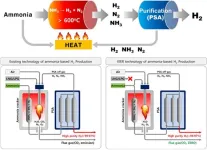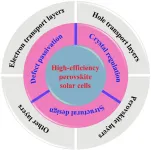Currently, screening and evaluation services for driving can only test a small number of individuals with cognitive concerns, missing many who need to know if they require treatment.
Nursing, engineering and neuropsychology researchers at Florida Atlantic University are testing and evaluating a readily and rapidly available, unobtrusive in-vehicle sensing system they have developed. This technology could provide the first step toward future widespread, low-cost early warnings of cognitive change for this large number of older drivers in the U.S. and elsewhere.
In their study, published in the journal BMC Geriatrics, they are systematically examining how this system could detect anomalous driving behavior indicative of cognitive impairment. Few studies have reported on the use of continuous, unobtrusive sensors and related monitoring devices for detecting subtle variability in the performance of highly complex everyday activities over time. This significant proportion of older drivers constitutes a previously unexplored opportunity to detect cognitive decline.
“The neuropathologies of Alzheimer’s disease have been found in the brains of older drivers killed in motor vehicle accidents who did not even know they had the disease and had no apparent signs of it,” said Ruth Tappen, Ed.D., principal investigator, senior author and the Christine E. Lynn Eminent Scholar and Professor, FAU Christine E. Lynn College of Nursing. “The purpose of our study arose from the importance of identifying cognitive dysfunction as early and efficiently as possible. Sensor systems installed in older drivers’ vehicles may detect these changes and could generate early warnings of possible changes in cognition.”
The study uses a naturalistic longitudinal design to obtain continuous information on driving behavior that is being compared with the results of extensive cognitive testing conducted every three months for three years. A driver facing camera, forward facing camera, and telematics unit are installed in the vehicle and data is downloaded every three months when the cognitive tests are administered.
Researchers are gauging abnormal driving such as getting lost, ignoring traffic signals and signs, near-collision events, distraction and drowsiness, reaction time and braking patterns. They also are looking at travel patterns such as number of trips, miles driven, miles on the highway, miles during the night and daytime, and driving in severe weather.
The in-vehicle sensor network developed by FAU researchers in the College of Engineering and Computer Science, uses open-source hardware and software components to reduce the time, risks and costs associated with developing in-vehicle sensing units. In-vehicle sensor systems are kept simple and compact by minimizing complex wiring, limiting the size of the sensing units, and limiting the number of sensors in a vehicle to support the unobtrusiveness of in-vehicle sensors. Each in-vehicle sensor system is comprised of two distributed sensing units: one for telematics data and the other for video data.
Inertial measurement unit data is processed to determine hard braking, hard accelerations and hard turns and GPS data. It also includes a timestamp, latitude, longitude, altitude, course over ground and the number of communicating satellites.
The video unit has built-in artificial intelligence functions that analyze video in real-time. The driver-facing camera is mounted in the left corner of the windshield and is directed to the driver’s face to analyze his/her behavior and facial expressions. The forward-facing camera is mounted under the rearview mirror and is used to record events external to the vehicle.
Driver-facing indices include face detection, eye detection (open or closed), yawning, distraction, smoking and mobile phone use. Behavior indices include traffic sign detection (running a red light), object detection (pedestrian, cyclists, curbs, barriers or nearby vehicles), lane crossing, near-collision and pedestrian detection.
“These travel-pattern-related driver behavior indices are known to be indicative of the changes in older drivers’ cognition and physical functions since they tend to incorporate deliberate avoidance strategies to compensate for age-related deficits,” said Tappen. “Driver behavior indices are evaluated for each driver and are summarized on a daily, weekly and monthly basis and are classified into four categories.”
A total of 460 study participants will be recruited from Broward and Palm Beach counties in Southeast Florida and are classified into three diagnostic groups: mild cognitive impairment, early dementia and unimpaired (normal). The Louis and Anne Green Memory and Wellness Center operated by FAU’s College of Nursing serves as the testing site for a clinical battery including assessments of cognition, functioning in daily activities and mood (depression), and an additional set of tests including executive function and attention.
“The innovation of our research project lies in the unobtrusive, rapidly and readily available in-vehicle sensing and monitoring system built upon modern open-source hardware and software using existing techniques to develop and customize the components and configure them for this new purpose,” said Tappen.
The study is supported by a grant from the National Institute on Aging, National Institutes of Health (1R01AG068472) awarded to Tappen.
- FAU -
About the Christine E. Lynn College of Nursing
FAU’s Christine E. Lynn College of Nursing is nationally and internationally known for its excellence and philosophy of caring science. The College was ranked No. 11 nationwide by US News and World Report in 2021 for “Best Online Master’s in Nursing Administration Programs” and No. 32 for the “Best Online Master’s in Nursing Programs.” In 2020, FAU graduates earned a 95.9% pass rate on the National Council Licensure Examination for Registered Nurses (NCLEX-RN®) and a 100% AGNP Certification Pass Rate. The baccalaureate, master’s and DNP programs at Florida Atlantic University’s Christine E. Lynn College of Nursing are accredited by the Commission on Collegiate Nursing Education. The College is the only one in the U.S. to have all degree programs endorsed by the American Holistic Nursing Credentialing Corporation.
About Florida Atlantic University:
Florida Atlantic University, established in 1961, officially opened its doors in 1964 as the fifth public university in Florida. Today, the University serves more than 30,000 undergraduate and graduate students across six campuses located along the southeast Florida coast. In recent years, the University has doubled its research expenditures and outpaced its peers in student achievement rates. Through the coexistence of access and excellence, FAU embodies an innovative model where traditional achievement gaps vanish. FAU is designated a Hispanic-serving institution, ranked as a top public university by U.S. News & World Report and a High Research Activity institution by the Carnegie Foundation for the Advancement of Teaching. For more information, visit www.fau.edu.
END









